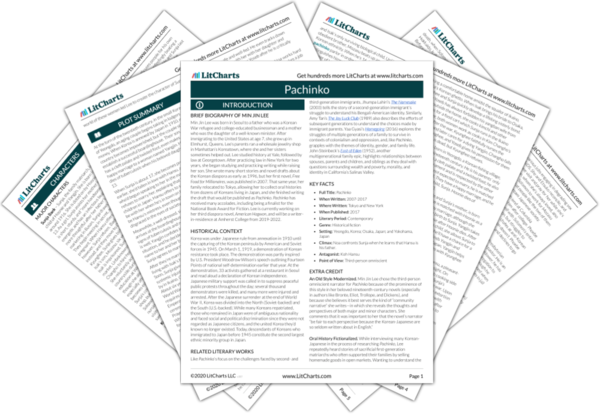After spending his life working hard to rise above poverty and prejudice in Ikaino, Noa now feels that he does, in fact, have contaminated blood. The taunts he’s heard all his life have been vindicated in a way, and this time, he can’t escape those taunts by simply working hard or moving away. Sunja has been perhaps willfully ignorant of the extent of what Hansu does, and she takes it for granted that some Koreans must participate in organized crime in order to survive; but to Noa, there’s no excuse for not resisting such a compromise. He feels that his entire sense of self is lost.


